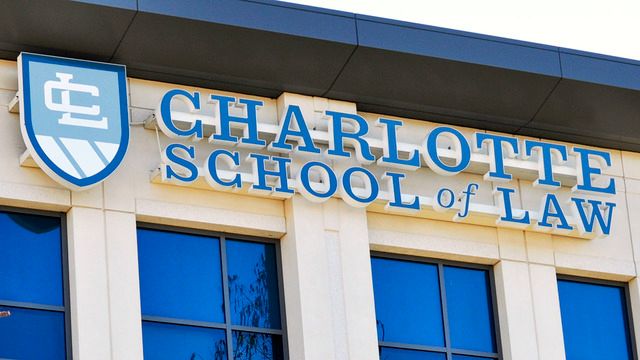Summary: Of the graduates from now-closed Charlotte School of Law taking the exam for the first time in February, not one passed the bar exam.
Students from Charlotte School of Law have gone through a lot this past year. The school lost access to federal student loans and then lost its license to operate. Unfortunately, things are not looking to get any better soon after recent bar exam results show that the school had dismissal passage rates.
The Charlotte Observer reported the recent results of February’s bar exam. The defunct law school had 11 recent graduates sit for the February exam for their first time but none of them passed. An additional 73 students took the latest bar exam who had already taken it once. Of those students, only eight passed. These results give the law school a passage rate of 9.5 percent.
The other North Carolina law schools posted much better results than Charlotte School of Law even though some still experienced a drop in their rates from the year before. Excluding Charlotte, 43 percent of in-state law graduates passed the exam on their first attempt, according to the N.C. Board of Law Examiners. Factoring in Charlotte’s rates brought the state rate down to 29 percent.
The winter exam in February generally has fewer candidates taking the exam so the passage rates tend to fluctuate more than the July exam results. For example, UNC Chapel Hill had a passage rate of 46 percent this year compared to a 65 percent rate this time last year. They had 28 graduates taking the exam.
Charlotte Law closed officially in August, meaning that these students lacked the same resources as those from other law schools to help them prepare. Margaret Kocaj, who passed the bar on her first try in July before Charlotte Law officially closed, said, “The stress of bar study is unlike anything I have ever experienced. I had the support of many students and the remaining faculty. These first-time takers did not.”
Charlotte attorney Noell Tin told The Observer that he feels bad for the students who have all these student loans but can’t pass the exam so they can get a job to start paying back those loans. Charlotte Law, a for-profit law school, had an annual tuition of $40,000. He said, “It just looks so bleak. Just imagine that you now have $200,000 of debt, you flunked the bar exam and your school doesn’t exist anymore.”
The law school was the first accredited law school to be banned from the student-loan program by the U.S. Department of Education in December 2016, just weeks before a new semester was set to begin. They accused school leaders of trying to hide problems with the school in order to keep enrollment numbers up so tuition money would keep flowing in. Enrollment at the law school once was around 1,400 before dropping to less than 100 left by the end.
With a lack of loans available for the students, faculty organized a food bank for the remaining students to help support them. However, many students made the decision to transfer to other law schools in the state and even out of state to finish the degree. The school had its final graduation last May.
When the University of North Carolina System finally pulled their license last summer, there were already a number of lawsuits filed by students for fraud and misrepresentation. As Kocaj explained, Charlotte Law had systematically “destroyed its own reputation and tarnished that of its students.”
The school’s alumni are determined to help the graduates pass the exam. Despite this help, Kocaj fears that her fellow schoolmates have given up. “These capable people, who have preserved through all that has been thrown at them, are considering new careers. Some would make great attorneys and advocates for their clients, and now, they aren’t sure they want to try again. That just makes me sad,” she added.
Do you think the school leaders should be made responsible for the school’s failure and students’ loans? Share your thoughts with us in the comments below.
To learn more about Charlotte School of Law, read these articles:
- Charlotte School of Law Files for Dismissal of Three Class Action Lawsuits
- Charlotte School of Law Misses Two Deadlines, Asks for Extension
- Charlotte Law Loses Federal Financial Aid
Photo: wsoctv.com


































